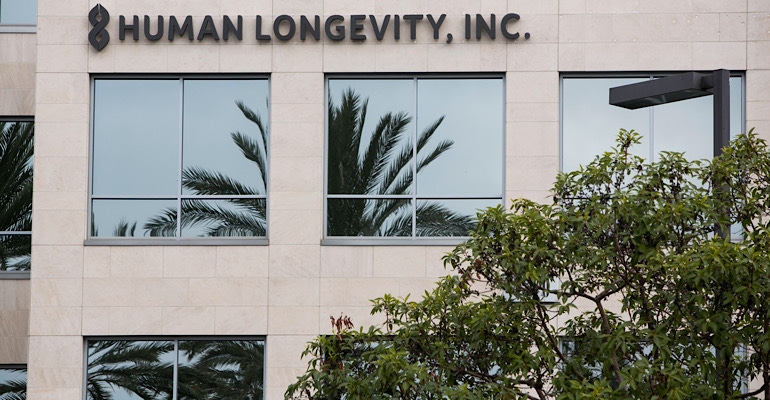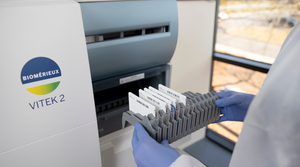Can Human Longevity Keep SPACs Alive in a Bumpy Economy?
The company would combine with Freedom Acquisition 1 Corporation in a SPAC merger. However, the current economic environment hasn’t been too kind to medtech firms seeking to go public through a SPAC. Many companies have either scaled back on the deal terms or scrapped the mergers completely.
June 23, 2022

One of the hottest medtech trends in 2021 was private companies going public through special purpose acquisition corporation mergers (SPAC). But the fires that once kept this trend hot, have fizzled out in recent months.
The war in Ukraine, global supply chain issues, and a potential recession on the horizon caused many of the companies that sought to go public through a SPAC to back out of planned mergers.
However, Human Longevity, a genome sequencing company, hasn’t given up on the idea of a SPAC, even if other companies in medtech and diagnostics have. The San Diego, CA-based company said earlier this week that it signed a non-binding letter of intent with Freedom Acquisition 1 Corporation for a proposed business combination. Under the terms of the SPAC, Human Longevity would become the parent company.
The merger is valued at $1 billion, and the transaction signing is anticipated by 3Q22 with closing by 1Q23.
If the merger is completed, then Human Longevity would receive $345 million from Freedom’s account.
Human Longevity was founded in 2013. The company is focused on helping people live past 100. To do this, the firm has developed an AI-enabled personalized health intelligence platform that combines genome sequencing, whole body quantitative MRI, and blood biomarkers, enabling early detection and disease-mitigating risk assessments of critical diseases.
In a release, J. Craig Venter Ph.D. and Co-Founder of Human Longevity said “This is an exciting development for HLI and should allow the company to expand its influence in changing how medicine is practiced. Using advanced MRI imaging, genomics and other non-invasive testing, HLI can detect the presence of diseases, including cancer, at early stages before they become symptomatic. Up to 50% of self-described healthy individuals who have gone through the HLI Health clinics have benefitted from early diagnosis of conditions, many of which have been lifesaving. I am proud of what HLI has accomplished to date and look forward to an exciting future.”
The Winding and Unpredictable SPAC Road

Companies have been all over the place on the SPAC spectrum. Some are successful and some aren’t. Because of the fluctuating environment for the blank check acquisitions, MD+DI published a list earlier this year titled “Where Are They Now: Updates on 7 SPAC Mergers.”
One of the first “troubled” medtech SPACS was the proposed merger between LumiraDx, a developer of COVID-19 tests, and CA Healthcare Acquisition Corp.
When LumiraDx announced the SPAC in April of 2021 – COVID-19 testing was at an all-time high. The story of the pandemic was still focused on the diagnostic component. But as more vaccines began to be distributed, the need for testing declined and resulted in LumiraDx reducing the term of its SPAC merger from $5 billion to $3 billion. The merger would finally close in September of 2021.
Other companies weren’t as fortunate. In many cases in medtech, the blank check deals were stopped dead in their tracks. Most recently, Accelus, a spine company, and CHP Merger Corp. mutually agreed to end a SPAC deal.
Another example occurred earlier this year, when HeartFlow and Longview Acquisition Corp. mutually terminated a planned merger that was announced in July of 2021.
Pear Therapeutics is one of the more successful SPACS in medtech to date. The prescription digital therapeutics (PDT) company closed on its SPAC in the second half 0f 2021 in a deal with a valuation of $1.6 billion. The Boston, MA-based company is developing PDTs that address substance abuse and sleeping disorders.
BTIG analyst Marie Thibault wrote favorably about the company in a recent research note.
Thibault said, “We like Pear’s work to pioneer and support the PDT ecosystem.”
Beyond Medtech
Outside of medtech, SPACs might have lost a bit of sheen, but the deals are still alive and kicking. Earlier this week, it was reported that Roxe Holding, a blockchain payment company, had entered into a $3.6 billion SPAC deal with Goldstone Acquisition Ltd.
It was also reported that Pagaya Technologies completed its merger with US SPAC company EJF Acquisition Corp. The deal had an $8.5 billion valuation and was the second-largest SPAC merger ever completed by an Israeli company, according to a report from Globes.
Finally, Polestar, an electric vehicle company, is expected to trade on the Nasdaq, Friday under the symbol PSNY. Polestar merged with SPAC firm, Gores Guggenheim.
About the Author(s)
You May Also Like



